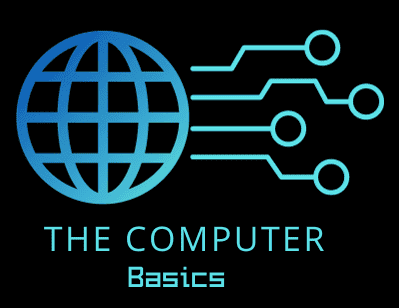Navigating online forums and communities can be likened to joining a new city full of neighborhoods, each with its own culture, rules, and conversations. When you dive into this digital city, it’s important to know the streets—the guidelines and etiquette that’ll help you become part of the community while keeping your personal information secure.
You’ll find that online communities offer a wealth of knowledge, support, and interaction, but it’s crucial to approach them with mindfulness to ensure your experience is positive.
Whether you’re on social media platforms, niche forums, or broader online groups, engaging with content and conversations requires a level of savvy to avoid the pitfalls of oversharing and encountering misinformation.
To make the most of online forums and communities, it’s all about balance. You can share your passions and opinions, ask for advice, and offer support while also protecting your privacy and well-being.
It’s a dance of participating actively and pausing to assess the trustworthiness and security of the spaces you’re in.
With a mix of critical thinking and empathy, you’re set to make meaningful connections and contribute positively without falling into common online traps.
Remember, it’s not just about the content you consume, but also about the engagement you foster. In online forums, your words have power—power to help, to heal, and to connect. But with that power comes responsibility.
You’re part of a larger community, so it pays to be kind, authentic, and smart about the traces you leave in these virtual spaces.
The right approach not only ensures a safer experience for you but also enhances the community as a whole.
Establishing Your Presence

Before you dive into the world of online communities, it’s crucial to pick a platform that resonates with your interests and to create a profile that truly represents who you are.
Choosing the Right Platform
The first step to establishing your presence in an online community is to select a platform that aligns with what you’re looking for.
Whether you’re into professional networking, hobbyist forums, or social media groups, your choice should revolve around the type of interaction and content you want to engage with.
Forums can offer in-depth discussions on niche topics, while social media offers a broader range of content types and a more casual interaction style.
- Forums: Look for platforms that are well-moderated and have a clear set of community guidelines. You can find this information in the Online Community 101 guide.
- Social Media: Choose a network that hosts a vibrant community of users with whom you share information and interests. Decide if you prefer a visual platform like Instagram, a real-time platform like Twitter, or a more comprehensive network like Facebook.
Creating a Strong Profile
After choosing the right platform, craft a profile that reflects your professional or personal identity authentically:
- Profile Picture: Use an image that represents you or your brand accurately.
- Bio: Summarize your interests or career focus precisely. If you’re looking to connect professionally, this guide for brands could help.
- Interests: Add topics or groups you’re passionate about to attract like-minded community members.
- Privacy Settings: Adjust these to manage what’s visible to others and to stay secure online.
Understanding Community Dynamics

When you’re part of an online forum or community, it’s crucial to grasp not only the written rules but also the unwritten social norms that govern interactions.
Etiquette and Best Practices
Etiquette in online communities isn’t too different from in-person interactions; it’s about showing respect and understanding. Here are a few tips to keep in mind:
- Be respectful: Acknowledge differing opinions and refrain from personal attacks.
- Read and follow the rules: Each community has its own set of rules; make sure you’re familiar with them.
- Contribute constructively: Whether you’re answering a question or starting a discussion, add value to the conversation.
- Use proper netiquette: This includes avoiding all caps (it’s like shouting!) and being mindful of your language and tone.
Remember, your digital footprint is permanent, so it’s best to interact in ways you’re proud of.
The Role of Moderation
Moderators play a vital part in maintaining the health of online communities. They enforce community guidelines and handle conflicts, but their role goes beyond that:
- Guidance: Moderators can guide discussions back on track if they veer off-topic.
- Support: They often assist members who may need help understanding community norms.
- Safety: A key aspect of their role is to keep the space secure for all members, dealing with spam and potentially harmful content.
Engaging Effectively
It’s vital to know how to dive into online discussions and forge meaningful connections as you navigate forums and online communities. Here’s how you can participate actively and create a positive impact with your online presence.
Starting and Participating in Discussions
Before jumping into a conversation, take a moment to read the room. Get a feel for the community’s vibe and the topics that are already sparking interest.
When you’re ready to start a discussion, create a clear and compelling topic title. It should be concise, yet descriptive enough to catch the attention of other users interested in that subject.
:clipboard: Discussion Tips:
- Introduce Yourself: Briefly share who you are and your interests or expertise related to the topic.
- Ask Questions: Encourage engagement by asking for opinions and experiences from others.
- Be Respectful: Always communicate with courtesy, even in disagreement.
When you respond to comments, do so with clarity and thoughtfulness.
Aim to contribute valuable insights or supportive feedback to foster a lively and respectful exchange of ideas.
Building Relationships and Networking
Engaging in forums is more than just sharing knowledge—it’s about building relationships. Taking time to connect and collaborate with others can lead to valuable networking opportunities.
As you participate in discussions, identify members with whom you share common interests or goals.
:handshake: Networking Strategies:
- Acknowledge Contributions: When someone offers helpful advice or insight, thank them. This simple act can start a connection.
- Offer Support: Be a resource to others. When possible, provide answers to questions or assist with challenges.
- Reach Out: Don’t hesitate to send private messages for deeper conversations or to establish one-on-one relationships.
Actively seeking collaboration can lead to more in-depth engagement and potentially foster partnerships or friendships within the community.
Remember, it’s not just about receiving support, but also about being a supportive and active member yourself.
By participating constructively, you’re contributing to the strength and value of the online community.
Sharing and Consumption of Content
In online forums and communities, your contributions and the insights you gain are pivotal. It’s all about the exchange—putting in valuable info and soaking up new perspectives.
Contributing Valuable Insights
When you share content, think of it as adding to a collective pot of wisdom. Your user-generated content should always aim to enrich conversations and foster knowledge sharing. Here’s how to keep it top-notch:
- Be Clear: Before posting, ensure your ideas are well-structured and straightforward.
- Stay Relevant: Tie your insights to the discussion at hand to maintain focus.
Learning from the Community
Discussion forums are treasure troves of information. When you’re on the receiving end:
- Be Open: Embrace different viewpoints and you’ll learn more than you anticipated.
- Engage Critically: Don’t take everything at face value. Analyze and question to deepen your understanding.
Maintaining Online Safety and Privacy

When you’re active in online communities, protecting your personal details and understanding how to handle potential risks are crucial for a positive experience.
Protecting Personal Information
Online safety starts with guarding your personal information. Be mindful of the details you share in profiles and posts:
- Personal Details: Limit sharing information like your full name, address, and date of birth.
- Privacy Settings: Regularly check and adjust your privacy settings to control who sees what you post.
- Strong Passwords: Use complex strong passwords and don’t reuse them across different platforms.
- Critical Thinking Skills: Apply critical thinking to assess whether sharing certain information is safe and to spot phishing attempts.
Navigating Risks and Reporting Issues
Staying secure also means knowing how to deal with risks and where to report them:
- Cyberbullying: Understand how to recognize cyberbullying. Then, learn where on the platform to report it.
- Suspicious Behavior: If you encounter something that feels off, report it. Trust your instincts.
Encountering issues isn’t a rarity. With these steps, you can create a safeguarded environment for yourself and others.

